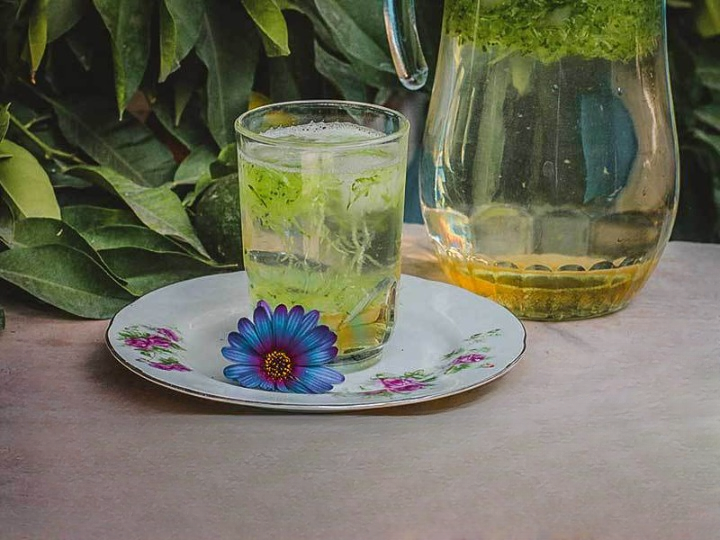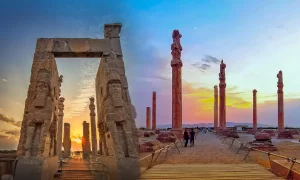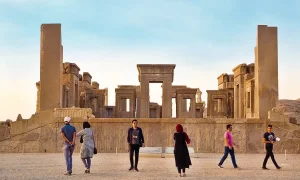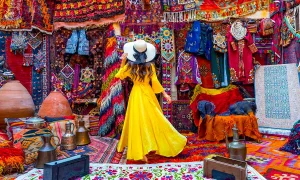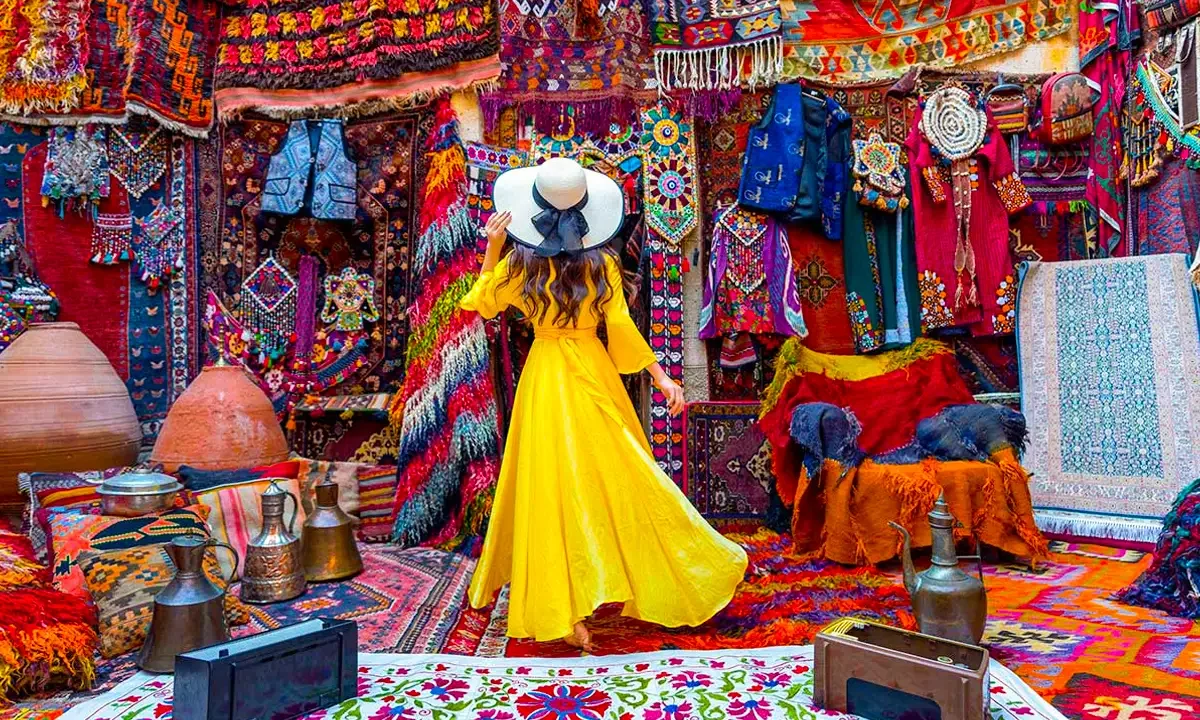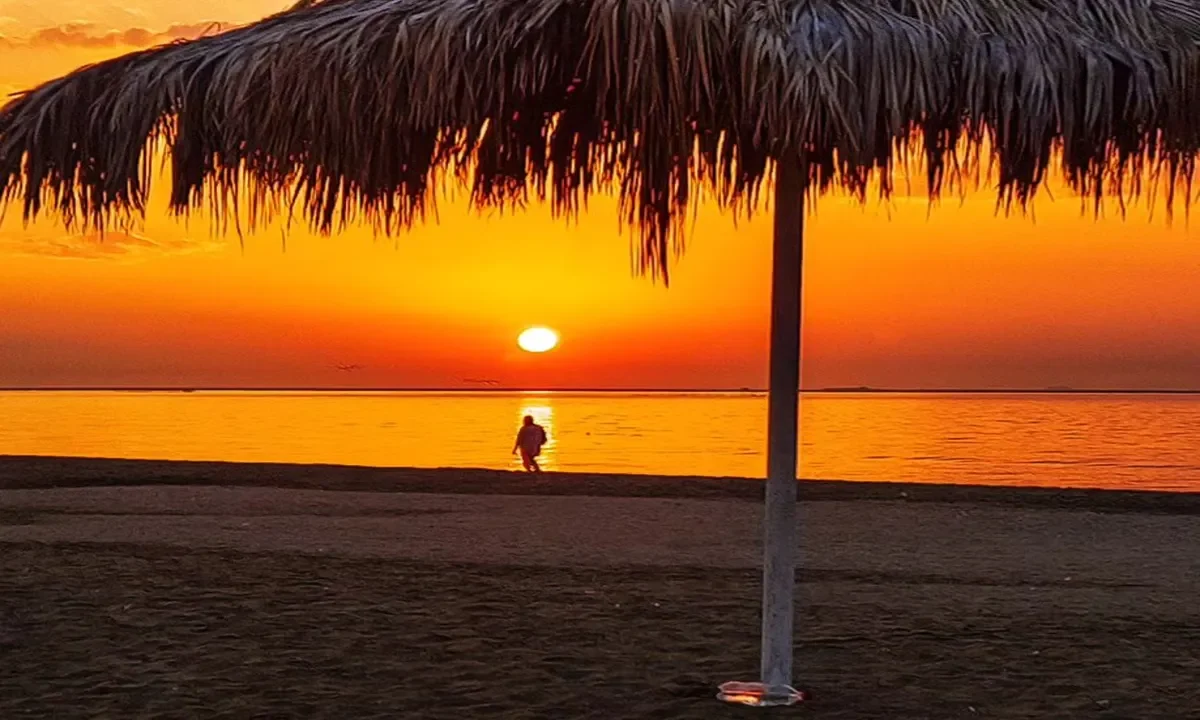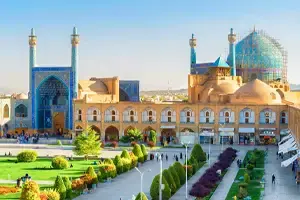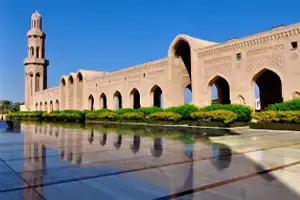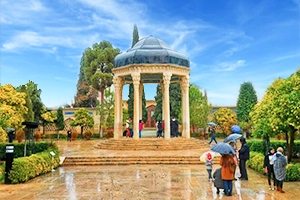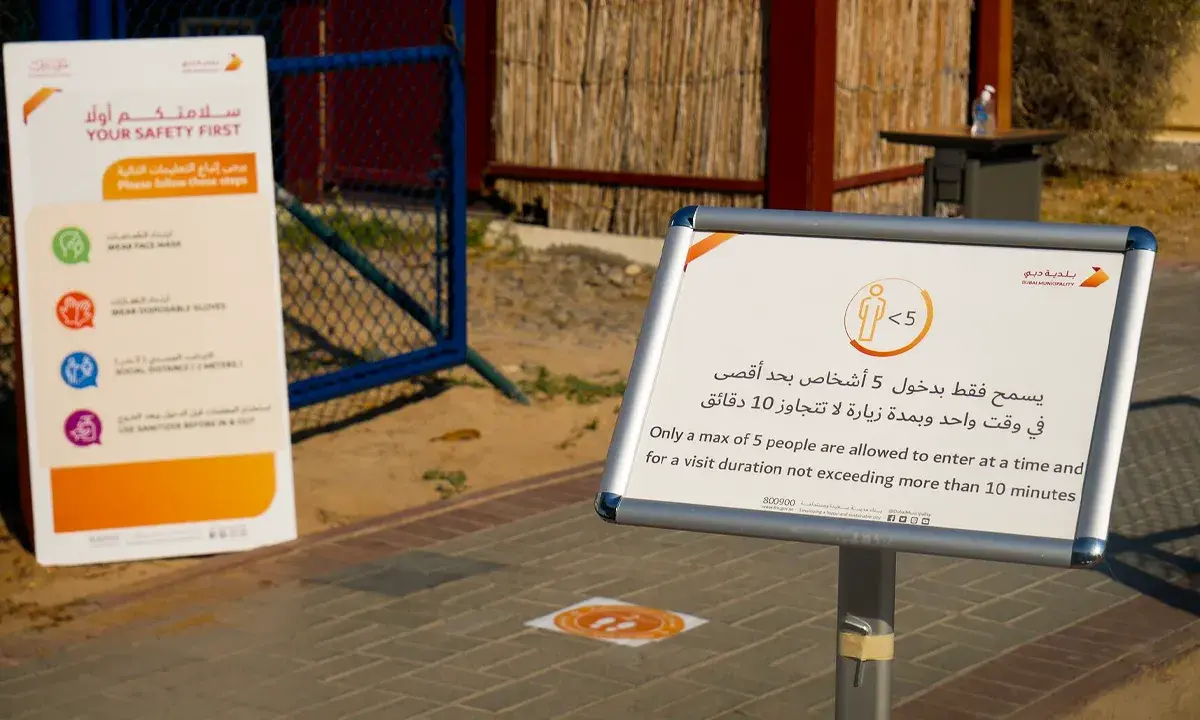You may ask yourself while traveling to Iran, “What do Iranians drink?” One of these attractions, which is embedded in all Iranians’ cultures, is its variety and colorful beverages. From ancient times to the present, Iranians have placed a high value on drinking. In addition to offering them at home and parties, there were and still are coffee shops, and tea shops in cities that provide various drinks. One of the most popular Iranian drinks is sekanjabin drink. For more information about what Iranians drink, join us to check out the best drinks that are popular in Iran.
History of Drinks and Teas in Iran
Before discussing the greatest Iranian beverages, it is important to understand their origins and histories. The evidence suggests that the earliest Iranian beverages were consumed thousands of years before Christ, during Jamshid’s reign. This Iranian monarch directed his courtiers to transport all of the fruit trees from throughout the world to Iran and collect their juice. Jamshid preferred grape juice above all others, therefore, he directed that it be poured into the vat and kept for the day. Furthermore, in the past, there were locations in Iran called Sharbat Khaneh that provided a variety of beverages and teas.
Today, thousands of years after Jamshid’s time, the diversity of Iranian beverages and teas has increased to the point where you may surprise your body’s sense of taste by trying a different flavor every day based on your taste and the unique features of those drinks. Nowadays, you can go to all the shops and use the best Iranian drinks with a car rental in Iran.
Introducing some authentic Iranian drinks and their properties
Let’s say you go on a cultural tour of Iran’s historic villages or simply hike high mountains on a cold day. Holding a hot Iranian drink in your hand and smelling its warm aroma can soothe the chill in your heart. It’s not just for winter; it’s a drink that will cheer you up any time of the year.
Persian Herbal Tea (Damnoosh)
Historically, certain herbal teas have been very effective in treating mental illnesses. Tea drinking is quite popular nowadays, and many popular teas are consumed. Herbal teas provide various therapeutic and medicinal advantages in addition to their distinct color and aroma. Tea has been one of the most popular Iranian drinks in the past. If you ask someone what Iranians drink, the first answer is tea. Now, some people may also use medicinal plants in their teas, which are called Damnoosh.
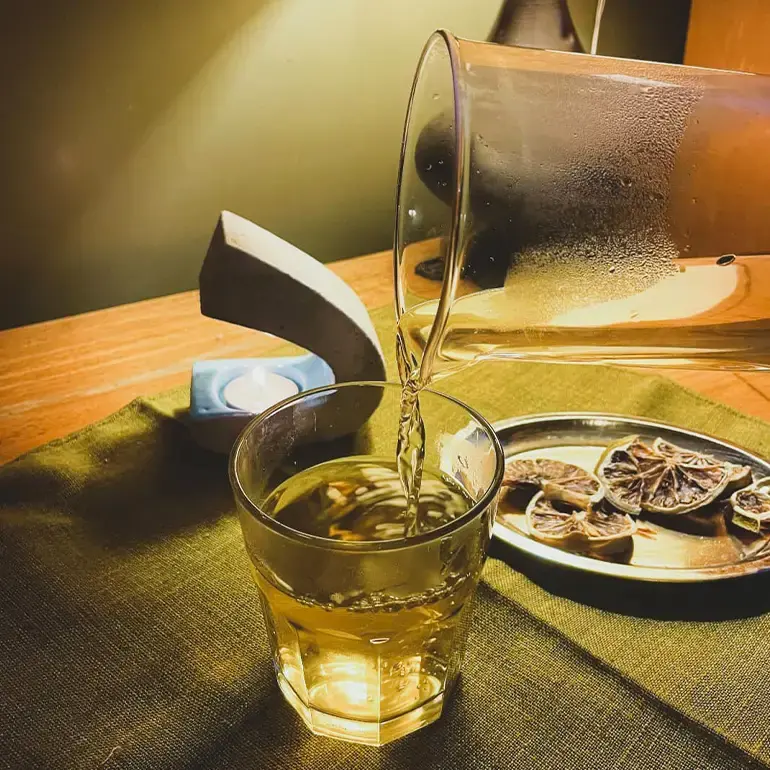
Thyme tea in Iran
One of the most popular teas is thyme tea. The medicinal properties of this drink include:
Strengthening the nerves, eyesight, digestive system, stomach, liver, and kidneys. Increased blood pressure; opening block. Dissolves gas and phlegm. Softens thick foods. Appetite; stimulants; menstrual flow; pulmonary edema; increased breast milk breast cleaner. Release of intestinal obstruction. Moisture-proof body. Bile; cold; cough; asthma; dyspnea; disinfectant. It also has a bactericidal effect (6 times more than antibiotics).
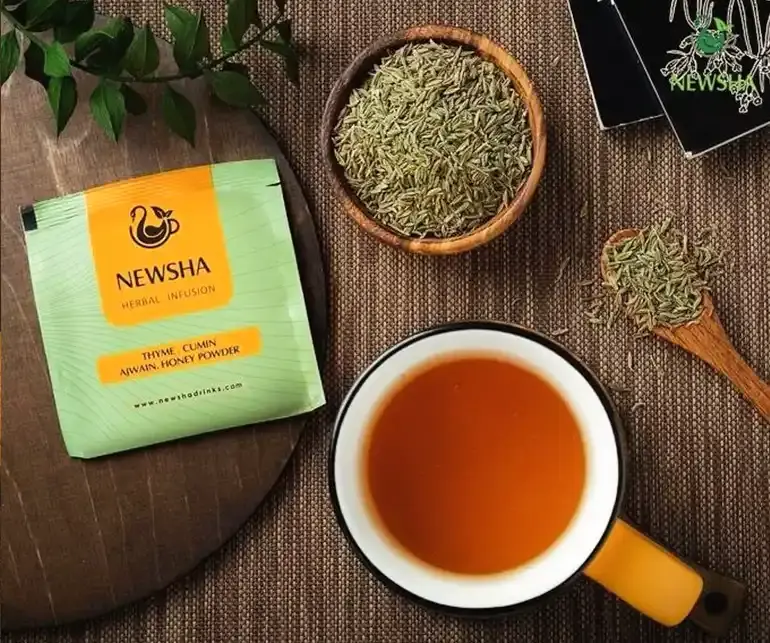
Fallen tea (Aftimoon) in Iran
Aftimoon tea is another tea with excellent characteristics. This tea has therapeutic benefits such as dissolving swellings, softening, opening blockages, and relaxing the heart. It is also beneficial for nerve disorders such as headaches, seizures, melancholy, nightmares and obsessions, and joint ailments. It is a phlegm and soda laxative when used alone, and a bile laxative when combined with violet. Because it is exceedingly soft and weak, boiling and crushing it destroys its properties. Eat the brewed Aftimoon to calm and strengthen your nerves. It has a positive effect on the brain, and it can help with Alzheimer’s disease.
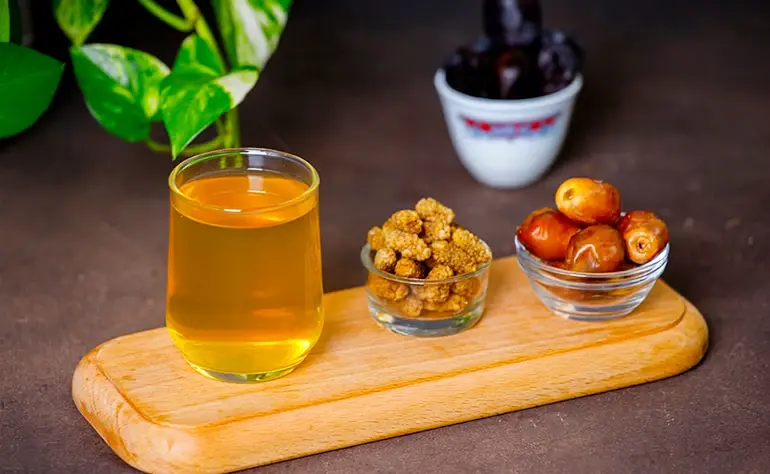
Lemonade tea (Badranjboye) in Iran
Lemongrass is a member of the mint family and is native to southern Europe. Although it is now grown in many regions of the world. Lemongrass leaves have a highly fragrant scent that is comparable to lemon, making it suitable for use alone or in combination with tea and other therapeutic plants. Lemongrass contains antimicrobial qualities, protects against renal illness, removes foul breath, improves attention, and decreases irritation. So if you ask what Iranian drink to relax, we can introduce this plant to you.
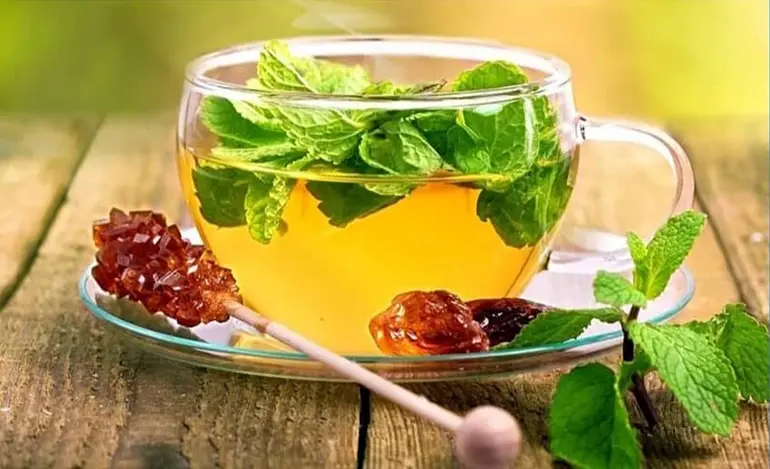
What is fruit tea and what are its benefits?
Iran is a country with a diverse and rich fruit tree population, and in addition to eating these fruits on their own, it is also usual to drink tea prepared from these fruits, which is known as fruit tea.
To produce these teas, various fruits are typically preserved so that they may be saved in the off-season to prepare a great Iranian drink. Cherry tea, cinnamon tea, citrus tea, pear tea, apple and cinnamon tea, berry tea, raspberry tea, and blackberry tea are examples of fruit teas. These teas are suitable for drinking throughout the year in Iran.
What is Sekanjabin drink? Can it be easily procured?
Sekanjabin syrup can be eaten with lettuce or as a cold drink mixed with water. Of course, they sometimes add grated cucumber to the sekanjabin syrup drink.
Sekanjabin syrup, made of honey, vinegar, mint, and water, is a traditional and tasty syrup that is usually used in the summer. This syrup is popular among Iranians of all ages.
Sekanjabin syrup can be consumed with lettuce or combined with water to make a chilled drink. Of course, they occasionally use shredded cucumber in the sekanjabin drink.
This syrup’s qualities include removing bile from the body, easing stomach bloating, relieving fever and headache, and treating nerve pain, among others.
To make this syrup, honey is first dissolved in water and then heated. After heating a small amount of honey solution in water and concentrating it, vinegar and mint are added and allowed to simmer and concentrate further. They then drain the syrup through a cotton towel and set it aside to cool. Finally, the prepared syrup is put into a jar and placed in a cold area, such as a refrigerator.
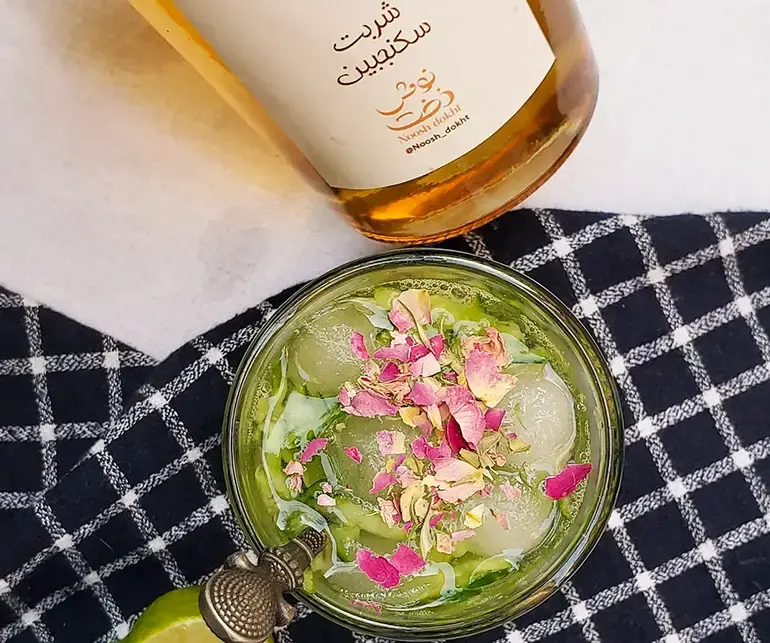
What is Saffron Sharbat? Is it possible to drink this syrup in Iran?
What do Iranians drink to have a strong body? In answer to this question, we must say saffron syrup.
Saffron is one of the world’s most costly spices, and the finest is harvested in Iran and the Khorasan area. Making a delightful syrup with saffron is one way to use this spice. Saffron’s soothing effect is one of its most essential characteristics. Furthermore, saffron has various advantages, including helping to boost the body’s immune system, maintaining digestive health, and energizing. To make this delectable syrup, crush and boil some saffron, then combine it with some water, sugar, and rose water and drink it.
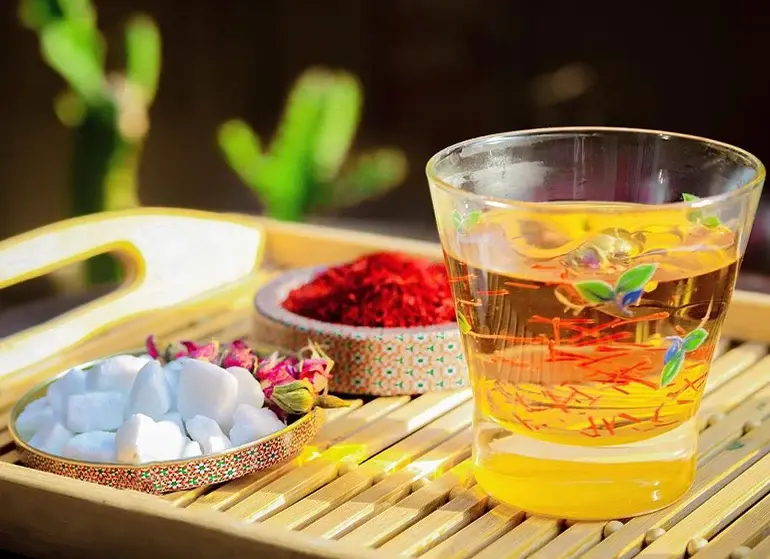
Khakshir syrup in Iran; A drink to reduce body temperature
The Khakshir plant grows naturally in many locations in Iran. Of course, farmers would occasionally cultivate Khakshir alongside their other crops on their agricultural grounds. This plant’s small seeds, when combined with water and sugar, may yield a tasty and colorful syrup that has been enjoyed in Iran since ancient times. Sorghum seeds can be added to various syrups, such as sekanjabin syrup, betel nut syrup, or egg syrup, in addition to sorghum syrup. Licorice syrup is beneficial for lowering body temperature, dropping weight, treating heat stroke and lethargy, and relieving headaches.
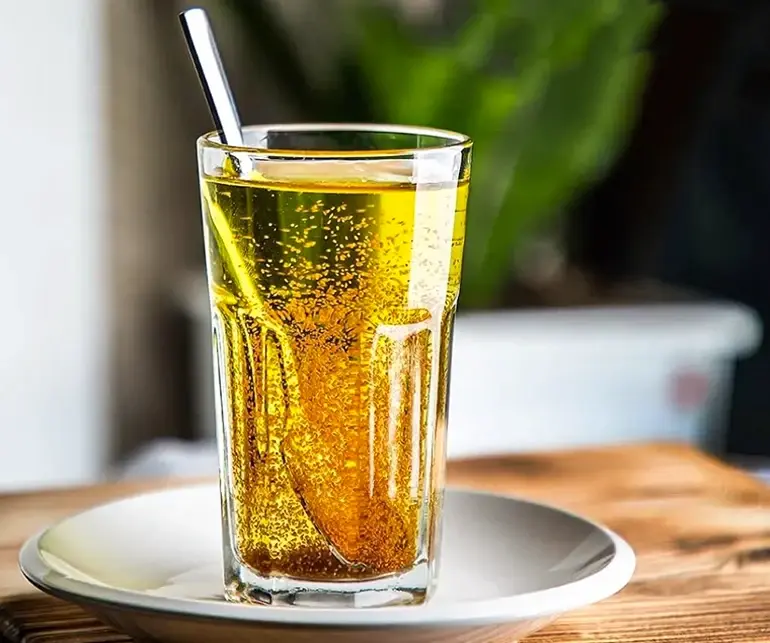
Bidmeshk Syrup in Iran; Soothing Syrup
Bidmeshk is yet another popular Iranian beverage. Bidmeshk is a fragrant willow shrub with fragrant spikes. Bidmeshk oil is derived from the Bidmeshk plant and is a type of extract with unique qualities.
Bidmeshk syrup may be made in a matter of minutes using Bidmeshk root. This syrup quenches your thirst while also providing your body with the unique qualities of betel nut. Bidmeshk has several advantages, including the ability to relax, alleviate headaches, strengthen the digestive system, treat diarrhea, boost appetite, lower blood sugar, and eradicate anemia.
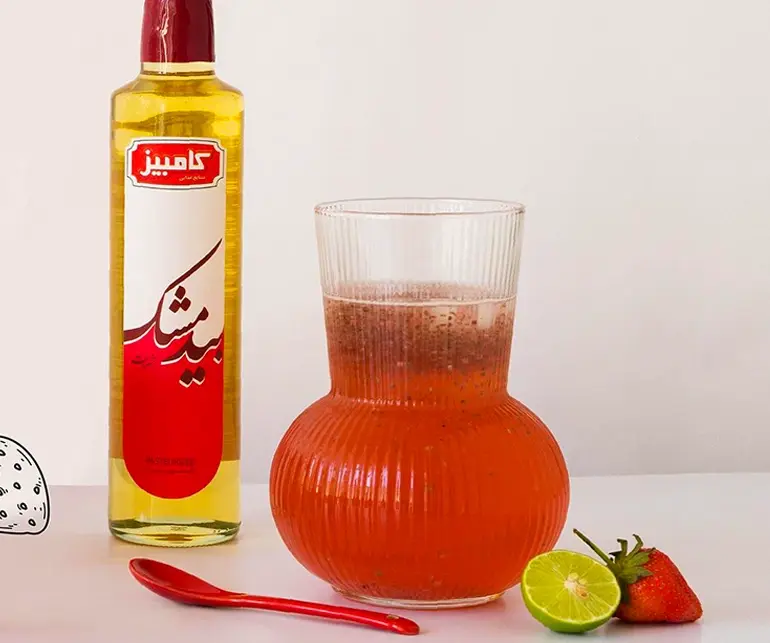
Chia seed syrup; an Interesting and useful drink in Iran
Chia seed syrup is one of the most distinctive and intriguing original Iranian beverages. Chia seed is a plant that grows in the mountains and deserts of Iran, India, and the Mediterranean area in the early spring every year.
When you mix Chia seed syrup with water, the most intriguing aspect of it becomes apparent. When exposed to water, the Chia seed turns slippery and thick. Oral use of Chia seed syrup aids in the treatment of colds, weight loss, diarrhea and constipation, skin health and whiteness, the treatment of coughs and respiratory disorders, and the reduction of blood pressure.
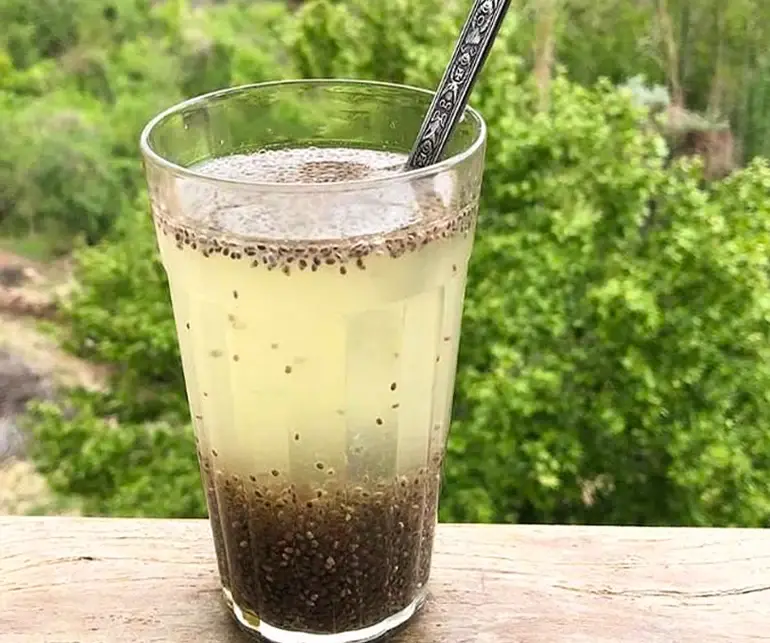
Gulab syrup; fragrant drink in Iran
Gulab is a traditional Iranian spirit that is frequently used. Gulab is a rose flower extract. In the spring, several desert cities in Iran absorb the extract of this aromatic flower, which has various medicinal effects.
Rose water is the most effective extract for scenting the surroundings and relieving tension and anxiety. This flower extract helps to calm tensions, and rose water is used to make different syrups.
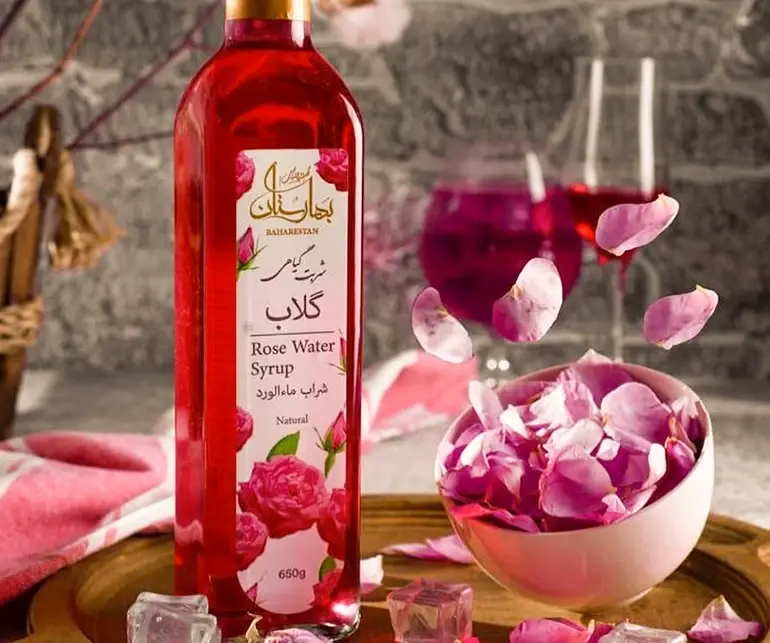
Mint syrup; Fragrant and anti-flatulent drink
Mint syrup, which has numerous medicinal benefits, is another classic Iranian drink. If you have digestive issues, this drink can assist to improve your digestive system and resolve them.
Mint syrup keeps your body hydrated and is an excellent alternative for quenching thirst in the heat. Mint relieves flatulence and foul breath. We recommend drinking mint syrup with meals to improve digestion.
It should be noted that drinking mint syrup is not advised for individuals who have excessive stomach acid and are typically sour. So if they ask you what Iranian Drinks are in summer, you can also mention this sherbet.
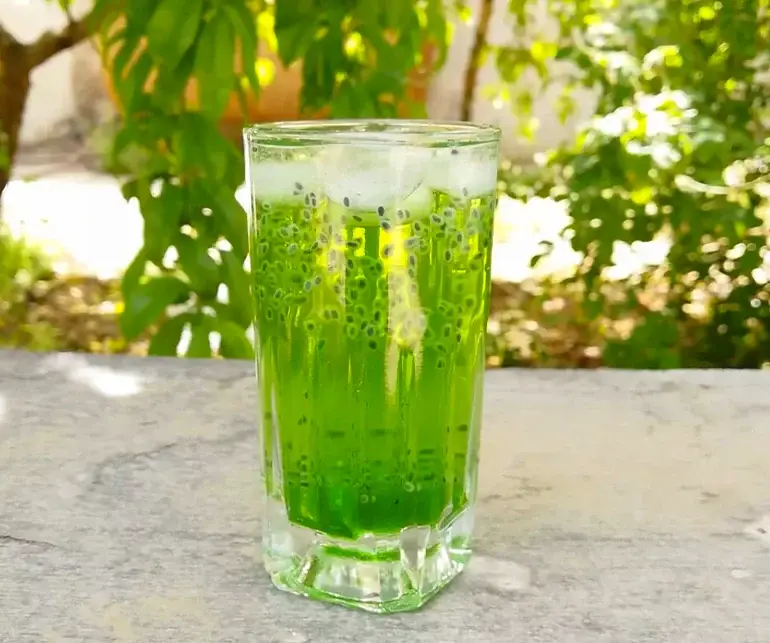
Cherry Syrup; One of the most popular Iranian syrups to quench thirst
The Cherry syrup is one of the most popular traditional Iranian syrups in summer. The properties and characteristics of cherries are especially suitable for warm-hearted people. Cherry syrup is one of the best fruits for hydrating and reducing dryness in the summer. Cherry fruit syrup is very effective in quenching thirst and fighting heatstroke. This fruit can be used fresh or in a slightly sweet syrup.
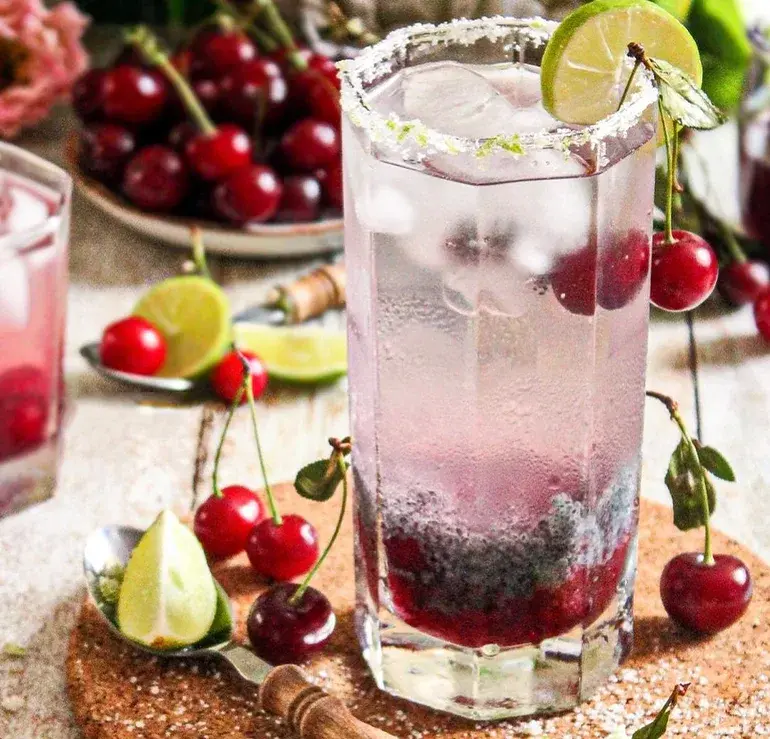
What is Dough in Iran?
The dough is one of the most popular Iranian cuisines and drinks among travelers. The dough is delicious as a typical Iranian dinner drink, especially with kebabs and rice. The sour and salty flavor of this Iranian drink complements the entire meal. The dough is accompanied by fragrant herbs like mint and rose powder. You can order Dough along with all Iranian dishes and enjoy your meal.
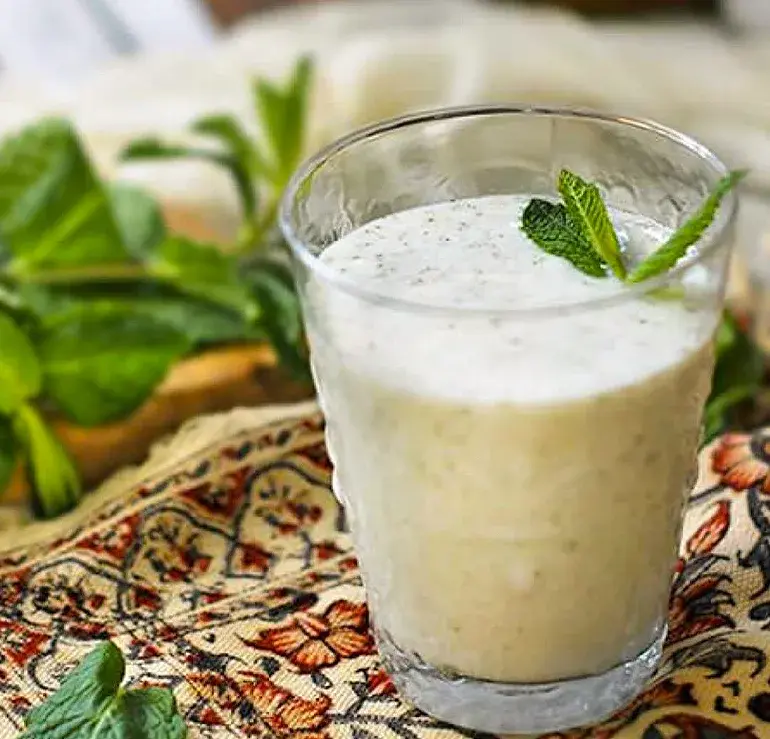
Gol Gav Zaban (Borage Tea) in Iran
This beneficial plant is rich in antioxidants, B vitamins, vitamin C, and minerals. Borage tea is typically consumed as a soothing and energizing beverage; however, it is useful in treating joint diseases, lowering blood pressure, preventing cancer, improving asthma symptoms, soothing mouth pains, removing kidney and bladder stones, and a variety of other ailments. Consuming too much borage flower may raise your risk of developing liver cancer.
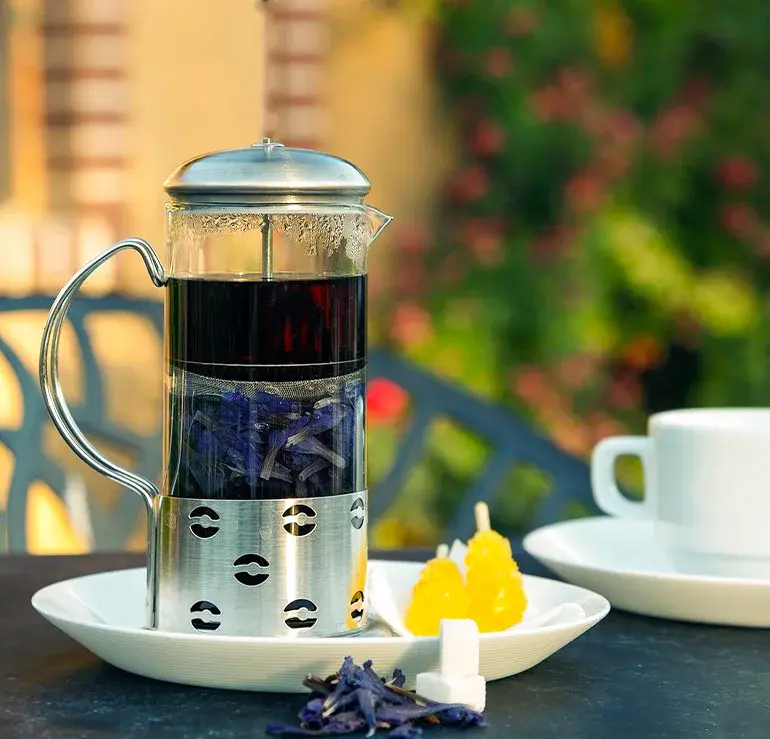
Cinnamon tea in Iran
We all recognize cinnamon by its pungent scent. The cinnamon plant grows as a little shrub, and practically all of its components have a pleasant aroma. However, the brown bark of this tree is used to make tea and other products. The Chinese believe that eating cinnamon daily for half a year will keep you young forever. Cinnamon may be used with almost any other plant to make a fragrant tea. Cinnamon and its tea have qualities such as blood sugar control, cholesterol reduction, cancer prevention, and Alzheimer’s disease prevention.
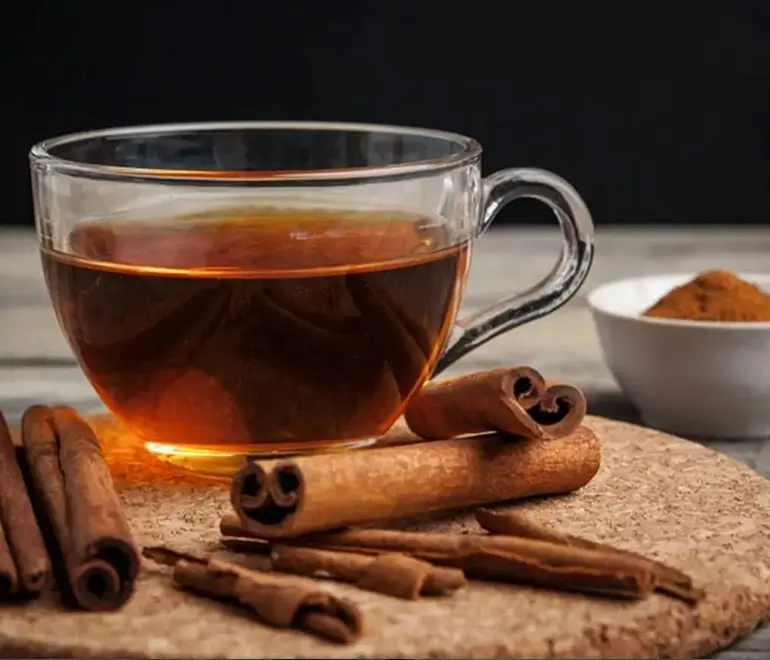
Why is Alcohol illegal in Iran?
Because Iran is an Islamic Republic, Muslims are prohibited from making and drinking alcoholic drinks; nevertheless, Islamic law provides for distinct laws for other ethnic groups, such as the Armenian Eastern Orthodox community. So keep in mind that alcoholic beverages are not permitted in Iran. Because the use of alcoholic drinks is illegal in Iran.
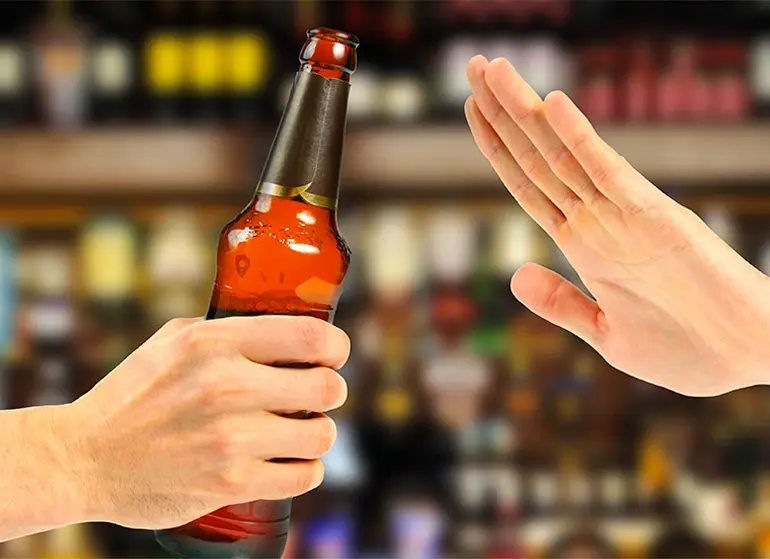
Last word
We attempted to address the topic of what Iranians drink and expose you to the greatest Iranian beverages in this post. When visiting Iran, you may rent a car to see all of the attractions and taste the greatest cuisine and drinks at a moderate cost. So, right now, hire a car that fits your budget, with or without a driver or a van, and enjoy the finest journey in this four-season nation.
FAQ
What are some traditional non-alcoholic Iranian drinks?
Traditional non-alcoholic Iranian drinks include “Doogh,” a yogurt-based beverage often seasoned with mint and salt, and “Sharbat-e Sekanjebin,” a sweet vinegar syrup mixed with mint and water. Another popular choice is “Khakshir,” a cooling drink made with soaked seeds of the khakshir plant, sweetened with sugar or honey, and flavored with lemon juice.
What are some unique ingredients found in Iranian drinks?
Iranian drinks often include unique and flavorful ingredients such as rosewater, saffron, cardamom, and dried lime. For instance, “Golab,” a drink made from rosewater, offers a fragrant and refreshing experience, and “Saffron milk,” a warm beverage, combines milk with saffron, sugar, and often cardamom or pistachios for added flavor.
What is a must-try Iranian drink for first-time visitors?
For first-time visitors to Iran, trying “Doogh” is a must. This traditional Persian yogurt drink is often served chilled and is sometimes carbonated. It’s typically flavored with mint and can include other additives like cucumber or rose petals, making it a refreshing complement to the rich flavors of Iranian cuisine, especially during the hot months. “Doogh” provides a unique taste experience that encapsulates the culinary essence of Iran.
